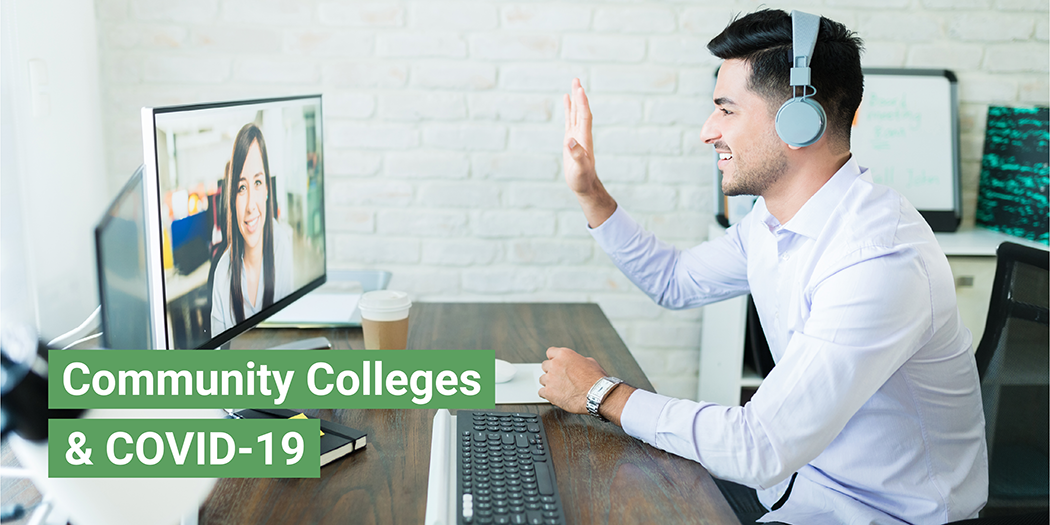In-person courses have transitioned online. Students were ordered to leave campuses. Commencements are postponed or cancelled. The coronavirus outbreak is rapidly transforming higher education. With colleges across the country transitioning to online instruction, many are left wondering: What about advising? How do we replace in-person advising interactions with online interactions? How do advisors continue to meet student needs to ensure credential progression and completion?
Communication between advisors and students is a challenge in the best of times, and it is more pivotal than ever amid a pandemic. COVID-19 exacerbates already existing advising-related issues at two-year and four-year broad-access institutions, including high student-to-advisor ratios, time constraints on appointments, and a lack of institutional capacity to support advisors in providing students with the developmental support that they would like to. Now, advisors may face additional challenges identifying and reaching students who may be dealing with stress, academic difficulties, and/or basic needs.
In light of this, the student support services research team at CCRC collected some key resources from our partners and college networks that we think may help colleges that are thinking about how to continue to support students during these uncertain times.
- According to NACADA, which hosted a webinar and began collecting notes from the field on advisor resources and responses in early March, the first step for college advisors is to offer online appointments to all students. They should also offer instructions on how to schedule an appointment. When possible, a video conference is better than a phone call, though when setting up appointments, advisors should ask students to confirm their phone number so that if video conferencing is not possible or the technology fails, the session can take place by phone. NACADA is continually updating its robust document of crowdsourced ideas from advisors and student services professionals to share with the field.
- By reaching out to students, advisors let them know that they are still part of a community, even when not on campus. The Hope Center for College, Community, and Justice recommends using language that conveys to students that the college is still committed to them, such as stating the need for physical distance rather than social distance.
- Achieving the Dream (ATD), Aspen Institute, and Educause published dedicated webpages for COVID-19 resources. These organizations provide resources for advising and student support, online instruction, and institutional leadership in response to the crisis.
- In a recent piece in Inside Higher Ed on advising during COVID-19, an advisor at Middle Tennessee State University encourages the use of Zoom’s screen-share feature to inform students about resources. Whether or not video conferencing is possible, advisors should email students a recap of the advising session, both to provide resources and to keep the dialogue open between themselves and their students.
- Lastly, NASPA’s COVID-19 page includes campus resources and policies. Institutions have shared their non-discrimination, large group, and self-isolation response plans. Another helpful resource for supporting student success in online learning is NASPA’s recent book, Online & Engaged: Innovative Student Affairs Practices for Online Learner Success.
If you have other resources to share that would helpful to colleges, please email us at ccrc@columbia.edu.





